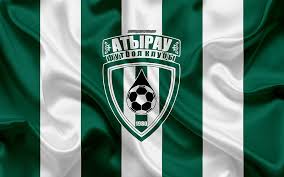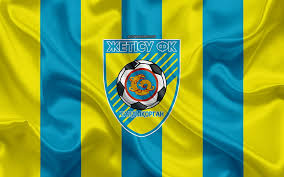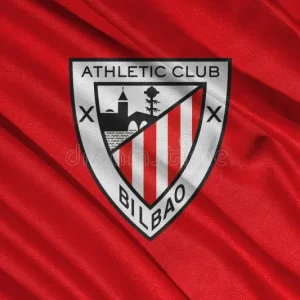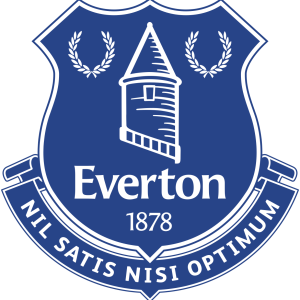West Ham United FC, often referred to simply as West Ham, is one of the most iconic teams in English football. Based in East London, the club has a rich history, passionate supporters, and a distinctive identity that sets it apart from other Premier League sides. Known as “The Hammers” or “The Irons”, West Ham embodies tradition, resilience, and the community spirit of London’s East End.
A Brief History of West Ham United
The roots of West Ham United date back to 1895, when the club was founded as Thames Ironworks FC. In 1900, the club re-formed as West Ham United, adopting the famous claret and blue colors that remain central to its identity today.
West Ham gained recognition not only for its league performances but also for its significant contribution to English football culture. The club’s early history is tied closely to the working-class communities of East London, where loyalty, hard work, and determination became part of the club’s DNA.
Throughout the 20th century, West Ham rose steadily through the ranks, cementing itself as a Premier League mainstay and a symbol of London’s footballing pride.
Home Ground: The London Stadium
West Ham United currently plays its home matches at the London Stadium in Stratford, East London. This modern venue, originally built for the 2012 Olympic Games, has a seating capacity of over 60,000, making it one of the largest stadiums in the Premier League.
Before moving to Stratford in 2016, West Ham’s home was the legendary Boleyn Ground, also known as Upton Park. For more than a century, Upton Park was synonymous with the club’s identity and was beloved by supporters worldwide. The relocation to the London Stadium marked a new era, giving the club the facilities and capacity to compete at the highest level while welcoming a new generation of fans.
Achievements and Honors
West Ham United may not boast the extensive trophy cabinet of England’s biggest clubs, but it has a proud record of achievements. The club has lifted the FA Cup three times (1964, 1975, and 1980), and in European competition, West Ham famously won the European Cup Winners’ Cup in 1965.
In recent years, West Ham achieved continental success again by winning the UEFA Europa Conference League in 2023, marking a triumphant moment for fans who had long awaited a return to European glory.
The club has also been a consistent presence in the Premier League, often producing memorable matches against some of England’s top sides. West Ham’s fighting spirit and ability to challenge bigger clubs have made it a respected competitor domestically and internationally.
Contribution to English Football
West Ham has long been regarded as one of the leading producers of footballing talent in England. The club’s academy, famously known as the “Academy of Football”, has developed several legendary players who went on to achieve international success.
Among the most notable graduates are Bobby Moore, who captained England to victory in the 1966 FIFA World Cup, Geoff Hurst, who scored a hat-trick in the same final, and Martin Peters, another key figure in that triumph. More recently, players like Frank Lampard, Rio Ferdinand, Joe Cole, and Michael Carrick have emerged from West Ham’s youth system before achieving stardom.
This tradition of nurturing young talent continues to define West Ham’s legacy, reinforcing its importance to the growth of English football.
Playing Style and Philosophy
West Ham United is renowned for a style of play that balances technical ability with physical strength. Historically, the team has emphasized attractive, attacking football, which often resonated with fans who appreciate flair and creativity.
In the modern era, under managers such as David Moyes, West Ham has combined tactical discipline with counter-attacking power. The team thrives on strong defensive organization while utilizing quick transitions to create scoring opportunities. This balanced approach has made West Ham a formidable opponent in both domestic and European competitions.
Rivalries and Fan Culture
Few clubs can match the intensity of West Ham’s rivalries, particularly with London neighbors. Matches against Tottenham Hotspur, Chelsea, and Millwall are among the fiercest in English football. The rivalry with Millwall, rooted in geographic and working-class traditions, is especially intense and historically one of the most passionate derbies in the country.
West Ham’s supporters are known for their unwavering loyalty and vocal presence at matches. The club anthem, “I’m Forever Blowing Bubbles”, is sung with pride before every home game, creating an unforgettable atmosphere that embodies the spirit of East London.
Notable Players in West Ham History
Over the years, West Ham United has been home to numerous footballing legends. Beyond Bobby Moore, Geoff Hurst, and Martin Peters, who are immortalized in English football history, the club has celebrated other icons such as Paolo Di Canio, whose skill and charisma made him a fan favorite, and Trevor Brooking, remembered for his elegance on the ball.
In more recent times, players like Mark Noble, affectionately called “Mr. West Ham”, epitomized loyalty and leadership, spending his entire professional career at the club. Current stars such as Declan Rice (before his transfer to Arsenal) also highlighted West Ham’s ability to develop world-class talent capable of excelling at the highest levels.
The Modern Era and Future Ambitions
West Ham United has been enjoying a period of resurgence in the Premier League. With strong investment, a talented squad, and the leadership of David Moyes, the club has consistently competed for European qualification. The triumph in the 2023 UEFA Europa Conference League signaled that West Ham could compete on the continental stage once again.
Looking ahead, the club aims to build on this momentum by strengthening its squad, expanding its global fanbase, and maintaining a balance between tradition and modern football demands. The London Stadium, with its world-class facilities, provides the perfect platform for this ambition.
Global Recognition and Influence
While West Ham remains deeply connected to its East London roots, the club has grown into a globally recognized brand. Its matches attract millions of viewers worldwide, and the fanbase extends across Europe, Asia, Africa, and the Americas.
Collaborations with international partners, preseason tours, and the presence of international players in the squad have helped West Ham expand its influence beyond the UK. For many fans abroad, supporting West Ham represents not just following a football team but embracing the history and identity of one of England’s most authentic clubs.
Conclusion
West Ham United FC is more than just a football club—it is a living symbol of East London’s history, culture, and spirit. From its origins as Thames Ironworks FC to its current status as a Premier League competitor with European honors, West Ham has carved out a unique place in football history.
With a proud legacy of developing talent, unforgettable achievements, and a loyal fanbase, the Hammers continue to inspire both in England and worldwide. As the club looks to the future with renewed ambition, West Ham United remains a true representation of resilience, passion, and the beautiful game.







